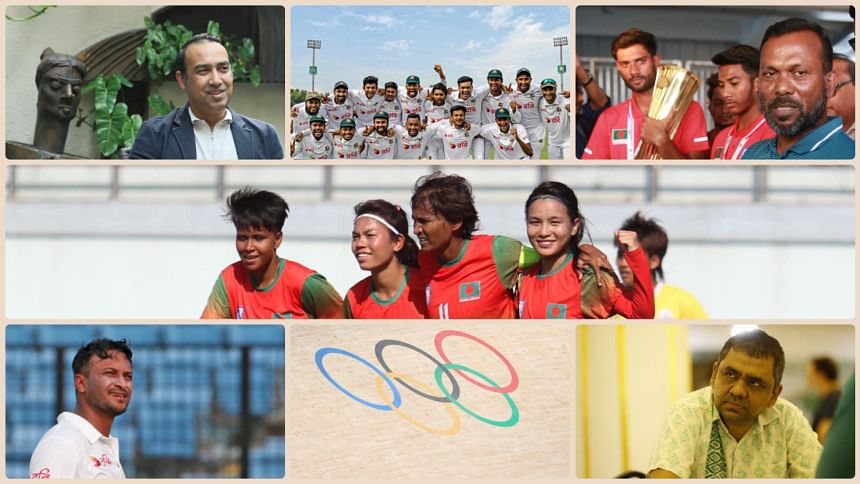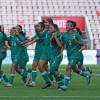Progress, setbacks, and a call for reform

It was, once again, a mixed bag for Bangladesh sports in 2024. While there were moments of bold strides, the year was also marked by lingering struggles and a desperate search for fresh beginnings.
In women's football, the national team gave their best in retaining the SAFF Women's Championship title, yet the limitations imposed by a lack of resources, international fixtures, and minimal pre-tournament preparation remain glaring. This victory, like their success in 2022, highlighted an important truth: it's time -- if not past time -- for the Bangladesh Football Federation (BFF) to focus on raising its sights beyond the South Asian level.
In cricket, the men's team offered glimpses of brilliance, clinching a historic 2-0 Test series victory in Pakistan and a T20I whitewash over the West Indies to cap off the year. However, the Tigers' closing performance at the T20 World Cup was marred by disappointment.
The year was marked less by the results on the field and more by the ongoing drama surrounding the squad. At the centre of it was Shakib Al Hasan, who called it quits from T20Is, and his Test farewell was overshadowed by his political affiliations. This was followed by a bowling ban, adding to the already controversial atmosphere surrounding his career. Fellow stalwart Mahmudullah Riyad also called time on his T20I career; quietly stepping away, much like his well-known predecessors.
The women cricketers, too, showed signs of progress but not without going through trials. A first-ever T20 World Cup victory, which came against Scotland, broke a long-standing rut for the Tigresses, but getting whitewashed in home series by Australia and India left a bitter taste. Nevertheless, the introduction of the country's first first-class tournament for women late in the year was a landmark decision.
The youth, meanwhile, kept on giving. Bangladesh footballers claimed both the SAFF U-19 Women's Championship and U-20 Men's Championships, while the young cricketers defended their U-19 Asia Cup crown, underlining the potential of grassroots development when executed effectively.
In hockey, 2024 proved to be a pivotal year. Despite its illustrious past in Bangladesh, the sport is hanging by a thread, and the youth team's qualification for the FIH Junior World Cup offered a beacon of hope for a sport at risk of fading into obscurity.
On the administrative front, hopes for a more progressive sporting environment were high following the political shift in August, with leadership changes raising expectations for improvements in planning, management, and infrastructure. However, the full impact of these transitions has yet to be seen, although these are still early days.
The year also saw the long-overdue passing of the torch in the leadership of two major sports bodies. Faruque Ahmed took over as president of the Bangladesh Cricket Board, while Tabith Awal replaced Kazi Salahuddin at the helm of the BFF. These changes have sparked hopes for a brighter future, and results are expected to be fully realised sooner rather than later.
Alongside these shifts, the sports community in Bangladesh mourned the loss of two legends. Chess grandmaster Ziaur Rahman, a pioneer who inspired generations of players, and Zakaria Pintu, the captain of the Swadhin Bangla Football Team during the Liberation War, passed away, leaving a legacy that will be remembered for generations to come.
Bangladesh's participation in the Paris Olympics, for the eleventh time, was again marked by disappointment. The country once again failed to secure its first-ever medal, while the gap between Bangladesh and top-tier sporting nations remains increasingly wide.
As 2024 draws to a close, the year presents both progress and persistent challenges. While there have been achievements in football, cricket, and hockey, the need for comprehensive reform and greater investment in sports infrastructure is more evident than ever.
For now, the sports community continues to wait for the realisation of the long-promised changes that will take Bangladesh sports to the next level in the foreseeable future, if not in 2025.

 For all latest news, follow The Daily Star's Google News channel.
For all latest news, follow The Daily Star's Google News channel. 











Comments